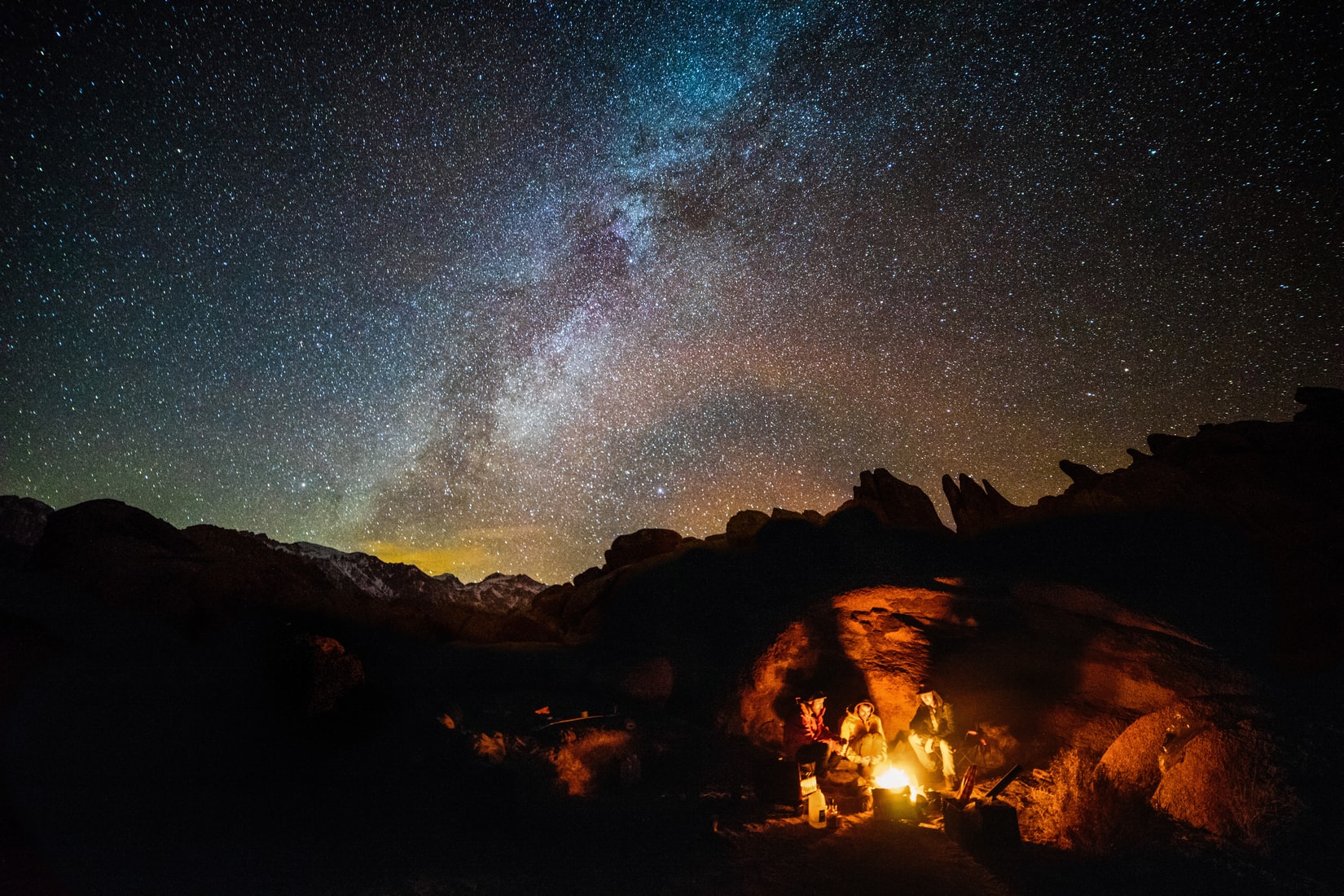Degrowth is a movement that explores another direction for society, one where ecological and social justice become possible, along with more meaningful lives. While there is no single definition for degrowth, this entry attempts to offer some guidance for understanding degrowth in all its diversity.
First, degrowth is a variety of challenges to the current status quo. Secondly, degrowth is not just a form of critique, but also encompasses diverse and interrelated positive utopian visions for the world. Thirdly, degrowth offers a set of paths for societal transformation in order to make these utopias possible.
-
From a missile word to other narratives: Degrowth as objection
Degrowth is a rigorous objection to dominant ideas about how economies and societies function. In this line, degrowth has been described as a ‘missile word’. Degrowth targets in particular two beliefs.
First, degrowth challenges the idea that economic growth is the only way to achieve prosperity and wellbeing for all. Growth does not improve our lives. Instead, the pursuit of infinite economic growth on a finite planet has led to both vast social inequality and ecological destruction. Degrowth also rejects claims (
for which there is no empirical evidence or theoretical justification) that we would be able continue to pursue infinite economic growth without accelerating the global ecological crisis.
Degrowth is not a passive critique, but an active project of hope, with vivid utopian visions of another, better world with equality, decolonization, reparations and social justice as its foundation.
Secondly, degrowth challenges the pessimistic belief that ecological collapse is inevitable, that all we can do now in response to the global climate crisis (and many other crises) is to close our communities and borders to those in need. As we will see in the next section, degrowth is not a passive critique, but an active project of hope, with vivid utopian visions of another, better world with equality, decolonization, reparations and social justice as its foundation.
The idea of degrowth as a missile word, a stone thrown, helps us grasp the radical intent of those who use it as a slogan. But degrowth is not a singular missile. Rather, it has transformed, after nearly twenty years of discussion and activism, into an entire web of guerilla narratives. These degrowth counter-narratives challenge the ideology of economic growth from a range of different perspectives, from political economy, sociology and happiness studies, to ecofeminism, social ecology and post-development theory.
-
Other worlds are possible: Degrowth as utopia(s)
Degrowth goes beyond a mere critique of the current system. It also offers genuine alternatives through theory and practice. Degrowth is not afraid to envision a utopian future for our world. The degrowth society is just, ecological, sustainable, democratic, participatory, internationalist and localized with rich cultural, ethnic and ecological diversity in each locality, and simultaneously open and global.
Like its web of counternarratives, degrowth utopias are not determined by doctrine or set in stone. They are multiple, flexible and continuously redefined based on new insights, critique and dialogue.
Who are the people who help imagine and invent degrowth utopias? Degrowth’s utopian vision has been supported by scholars and researchers from around the world. Together, their work amounts to hundreds of peer-reviewed publications, numerous special issues, and a wide range of academic and accessible books on the subject.
But it was
activists and practitioners who first brought the degrowth movement into existence. For degrowth practitioners, utopias do not exist only as long term visions, but also take shape as microcosms in the here and now. The creators and inhabitants of degrowth
nowtopias seek to live in the society that they believe should exist, and demonstrate that other worlds are possible. Examples of nowtopias include community gardens, cooperatives, open source technology projects, repair cafes, mutual aid networks and more. Each year, conferences in cities around the world bring degrowth theory and practice together, as participants from different fields and backgrounds debate current challenges and future visions for the movement.
There is a tendency to think that these degrowthers are a small minority. But in fact, they are in good company. The political movement of degrowth emerged in France in the early 2000s but degrowth sources like voluntary simplicity have wide and old recognition. We find traces of degrowth in the philosophies of Lao Tse, Diogenes and Epicurus, for example. On the contrary the idea of economic growth was put forward with the rise of capitalism which is relatively recent. In spite of the incredible media/political push of this idea of growth,
the idea of degrowth is becoming the favored emerging utopia these days.
Many different
Indigenous cultures offer practices, philosophies and ways of life that resonate with degrowth and its long term vision. Degrowthers can also look to resistance movements in the Global North and South, from
MOVE to the
Zapatistas for insight and inspiration as they imagine a radically different world. Beyond this, there is a
wide range of social movements whose practical and theoretical knowledge, and critiques of degrowth, can help utopian degrowthers expand their own understanding of what is possible.
-
Degrowth of some things, expansion of others: Degrowth as paths of socio-ecological transformation
How can we make degrowth utopias a reality, and strengthen and expand existing degrowth nowtopias? To address this challenge, degrowth articulates practical and diverse roadmaps to a better world. It is in this way that the word ‘degrowth’ takes on a third meaning—degrowth as paths of transformation.
Rather than presenting a silver bullet solution, degrowth proposes a
web of change across
housing,
urban planning,
transport,
agriculture,
energy systems,
money,
redistributive taxation,
biodiversity,
supply chains,
manufacturing,
software,
hardware and
technology governance,
employment and
working conditions,
welfare,
healthcare,
education,
democracy and more. Together, these proposals can guide an equitable, planned downscaling of production and consumption.
But these paths do not demand that we downscale everything. Rather, the task is to shrink some sectors, while simultaneously expanding and transforming others for the better, while the sum is a move to the reduction of material and energy flow and to simpler and more meaningful lives.
Degrowing aviation, for example, means reducing unnecessary flying while also making travelling by train, bike, sailboat and on foot more accessible. Similarly, advocates of
housing for degrowth or
degrowing tourism, propose not only doing less but also doing things differently, that is, not only reducing ecologically and socially harmful practices and models, but also fostering and expanding existing alternatives that center both the environment and human needs.
Instead of the
rebound effect that accompanies attempts at eco-innovation under the growth paradigm, degrowth pathways promote
debound, creating an interlinked web of technical and non-technical solutions that fulfill human needs.
These pathways also contribute to a decolonization of imaginaries—by challenging commodification, consumerism, the pursuit of profit, the Western model of development and the destructive, growth-dependent system of capitalism itself. In this way, degrowth seeks to bring about not just material and political change, but cultural change too, allowing us to understand the world, ourselves and our desires through an entirely different lens.
-
Linking diversity: Fulfilment of needs and non-violence at the core of degrowth?
Degrowth thrives on diversity, embracing a wide range of different perspectives. These diverse perspectives are actually about fulfilling diverse profound needs, material ones like food or shelter for all but also many non-material needs. Degrowth is thus a proposition to meet these multiple concomitant needs by creating the conditions for a society where cooperation becomes possible, where sources of violence dwindle. To do so involves a fundamentally non-violent approach, on the one hand through cooperative approaches within the movements for social transformation but also conflicting ones as it involves non-violent civil disobedience in the face of a highly unequal society destroying, among others, natural resources, cultures, and biomes. Responding to deep needs, whether we are talking about material needs, or needs for well-being, community, recognition outside the growth dogma requires dialogue and listening to emotions and feelings. Degrowth is thus a vast collective project in which we empathize with the deep needs of everyone. To this end we need highly democratic processes to give voice to what is not expressed in order to build degrowth narratives: narratives which make us realize that meeting the needs of all is part of the realm of what is possible.
We were kindly granted permission by the authors and Uneven Earth to republish this piece. Its title has been amended.


